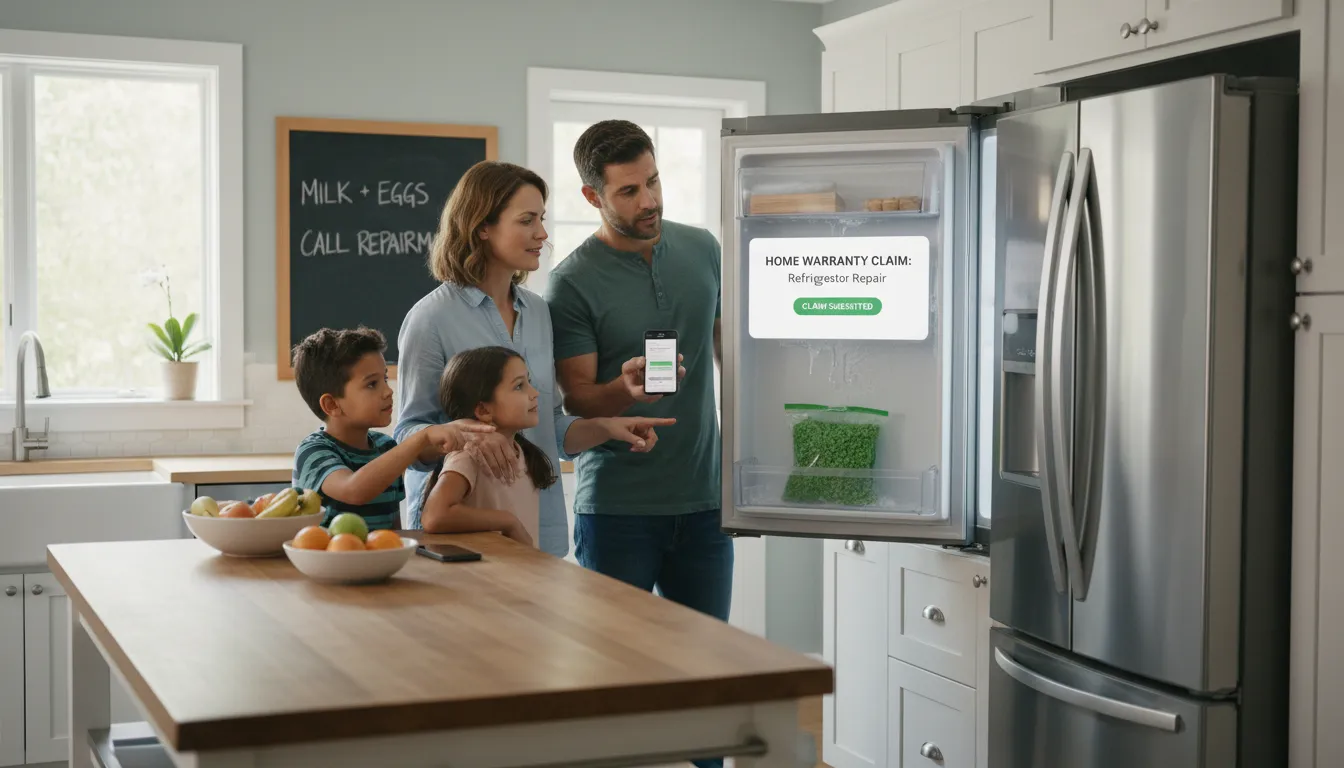
Embarking on the journey of buying your first home can be both exhilarating and daunting, especially in a market like Utah. This comprehensive guide explores essential grants, assistance programs, and expert tips to streamline your home-buying experience, ensuring you make informed decisions every step of the way.
Understanding the Importance of Preparation
Preparation is the cornerstone of a smooth home-buying process. As a first-time home buyer, you might be overwhelmed by the multitude of tasks ahead. But remember, a well-prepared buyer is a confident buyer. Start by educating yourself about the local market trends in Utah. Understand the average prices, the types of homes available, and the neighborhoods. This knowledge will give you a realistic expectation of what you can afford and where you can find your dream home.
Next, assess your financial situation. Review your credit score, gather your financial documents, and calculate how much you can comfortably spend on a home. Use online mortgage calculators to get an estimate of your monthly payments. This step will help you understand what you can afford and prevent you from falling in love with a house that's out of your budget.
Additionally, consider attending home buyer education courses. These courses can provide valuable insights into the home-buying process, from securing a mortgage to closing the deal. Many programs also offer certificates that can qualify you for certain grants and assistance programs.
Overcoming Analysis Paralysis
Analysis paralysis is a common issue among first-time home buyers. With so many choices, it's easy to feel overwhelmed and indecisive. The best way to overcome this is to create a clear list of your priorities. Identify the must-haves and the nice-to-haves. This could include the number of bedrooms, proximity to work, school districts, and amenities.
Once you have your list, stick to it. It's easy to get swayed by beautiful homes that don't meet your criteria. Stay focused on what you need and what you can afford. Remember, no home is perfect, but the right home will meet most of your needs and fit within your budget.
Another effective strategy is to limit the number of homes you view in a single day. Seeing too many properties at once can blur your memory and make it harder to make a decision. Take your time to evaluate each home and how it matches your list of priorities.
Securing Financing: The First Step
Financing is often the most daunting part of buying a home, but it's also the most crucial. Start by getting pre-approved for a mortgage. This not only gives you a clear idea of how much you can borrow but also shows sellers that you're a serious buyer. When you get pre-approved, lenders will review your financial history, credit score, and income to determine your loan eligibility.
Shop around for the best mortgage rates and terms. Different lenders offer different rates, and even a small difference can save you thousands of dollars over the life of the loan. Consider working with a mortgage broker who can help you compare offers from multiple lenders.
There are various types of mortgages available, including fixed-rate, adjustable-rate, FHA, VA, and USDA loans. Each has its own advantages and requirements. For instance, FHA loans are popular among first-time buyers because they require a lower down payment and have more lenient credit requirements. VA loans offer benefits for veterans, while USDA loans provide opportunities for rural home buyers.
Choosing the Right Real Estate Agent
Your real estate agent will be your guide through the home-buying process, so choosing the right one is crucial. Look for an agent who has experience working with first-time home buyers and knows the local market well. A good agent will listen to your needs, provide valuable insights, and help you navigate the complexities of buying a home.
Interview multiple agents before making your decision. Ask about their experience, how they handle negotiations, and their availability. You want an agent who is responsive and communicates clearly. Check their references and read reviews from past clients to get a sense of their reputation.
A great real estate agent will also have a network of professionals, including lenders, inspectors, and contractors, who can assist you throughout the process. This network can be invaluable in ensuring a smooth transaction and addressing any issues that arise.
Understanding the Home Buying Process
The home buying process can be complex, but breaking it down into manageable steps can make it more manageable. Here's a brief overview:
- Determine Your Budget: Assess your financial situation and get pre-approved for a mortgage.
- Find a Real Estate Agent: Choose an experienced agent who understands your needs.
- Start House Hunting: Use your list of priorities to narrow down your options and visit potential homes.
- Make an Offer: Work with your agent to submit a competitive offer on your chosen home.
- Home Inspection: Hire a professional inspector to evaluate the condition of the home.
- Secure Financing: Finalize your mortgage application and lock in your interest rate.
- Closing: Review and sign the necessary documents to complete the purchase.
Each step requires careful consideration and attention to detail. Rely on your agent and lender to guide you through the process and answer any questions you may have.
Exploring Grants and Assistance Programs
As a first-time home buyer, you may be eligible for various grants and assistance programs that can help with your down payment and closing costs. These programs are designed to make homeownership more accessible and affordable. Here are some options to consider:
- Utah Housing Corporation: Offers down payment assistance and affordable mortgage options for first-time buyers.
- Federal Housing Administration (FHA) Loans: Provides low down payment options and flexible credit requirements.
- Veterans Affairs (VA) Loans: Offers benefits for veterans, including no down payment and competitive interest rates.
- USDA Rural Development Loans: Provides opportunities for buyers in rural areas with no down payment required.
- Local Grants and Programs: Check with your city or county for additional assistance programs that may be available.
Each program has its own eligibility requirements and application process. Research your options and work with your lender to determine which programs you qualify for. Taking advantage of these resources can significantly reduce your out-of-pocket expenses and make homeownership more attainable.
Navigating the Offer and Negotiation Process
Once you've found the perfect home, it's time to make an offer. This can be one of the most nerve-wracking parts of the process, but with the right preparation, you can approach it with confidence. Your real estate agent will help you determine a fair offer price based on comparable sales in the area and the condition of the home.
Be prepared for counteroffers from the seller. This is a normal part of the negotiation process. Stay flexible and open to compromise, but also know your limits. Your agent will guide you through the back-and-forth to reach an agreement that works for both parties.
It's important to include contingencies in your offer to protect yourself. Common contingencies include financing, home inspection, and appraisal. These conditions must be met for the sale to proceed, and they provide a way to back out of the deal if something goes wrong.
Explore Utah Real Estate

5618 E SOUTH FORK RD, Provo, UT
$43,000,000
Bedrooms: 6 Bathrooms: 10 Square feet: 22,958 sqft

2098 E GOOSE RANCH RD, Vernal, UT
$103,000
Square feet: 274,864 sqft

2148 E GOOSE RANCH RD, Vernal, UT
$116,000
Square feet: 309,276 sqft
Once your offer is accepted, you'll move into the due diligence phase. This includes scheduling a home inspection to identify any potential issues with the property. If the inspection reveals significant problems, you may need to renegotiate the terms or even reconsider your purchase.
Finalizing the Purchase
After navigating the offer and negotiation process, the final steps involve securing your financing and preparing for closing. Your lender will guide you through the final stages of the mortgage application, including providing any additional documentation and locking in your interest rate.
Review the Loan Estimate provided by your lender to understand the terms of your mortgage, including the interest rate, monthly payments, and closing costs. If everything looks good, you'll receive a Closing Disclosure, which outlines the final terms of the loan.
Before closing, conduct a final walk-through of the property to ensure it's in the agreed-upon condition. This is your last chance to address any issues before completing the purchase. If everything is in order, you'll proceed to the closing appointment, where you'll sign the necessary documents and pay the closing costs.
Once the paperwork is complete and the funds are transferred, you'll receive the keys to your new home. Congratulations, you're now a homeowner!
Post-Purchase Considerations
After moving into your new home, there are a few important steps to take to ensure a smooth transition. First, update your address with the post office, banks, and other important institutions. This will ensure you receive all your mail and bills at your new address.
Next, familiarize yourself with your new neighborhood. Locate nearby amenities such as grocery stores, schools, and healthcare facilities. Introduce yourself to your neighbors and become part of the community.
It's also important to maintain your home to protect your investment. Create a maintenance schedule to keep up with regular tasks such as cleaning gutters, servicing HVAC systems, and inspecting the roof. Address any repairs promptly to prevent small issues from becoming major problems.
Lastly, review your homeowner's insurance policy to ensure you have adequate coverage. Consider additional coverage for natural disasters if you're in an area prone to events like earthquakes or floods. Regularly review and update your policy as needed to protect your home and belongings.
Building Equity and Planning for the Future
Homeownership is a long-term investment that can build equity over time. As you make mortgage payments and your property's value appreciates, you'll accumulate equity, which can be a valuable financial resource. You can leverage this equity for future investments, such as home improvements, education, or even purchasing a second property.
Consider setting financial goals for your homeownership journey. This could include paying off your mortgage early, saving for renovations, or planning for retirement. Regularly review your financial situation and adjust your goals as needed to stay on track.
Keep an eye on the real estate market and stay informed about trends that may impact your property's value. This knowledge will help you make informed decisions about when to sell, refinance, or make improvements to your home.
Remember, homeownership is a journey, and each step brings new opportunities and challenges. With careful planning and proactive management, you can enjoy the many benefits of owning a home and build a secure financial future for yourself and your family.
Identifying Available Grants and Programs
Once you have a clear understanding of your financial situation and housing needs, it's time to explore the various grants and programs available to first-time home buyers in Utah. These resources can provide substantial assistance, making the dream of homeownership more attainable. Here’s a deeper look into some of the key programs you should consider:
Utah Housing Corporation
The Utah Housing Corporation is a significant resource for first-time home buyers. They offer down payment assistance and affordable mortgage options. Their programs are designed to help buyers who might not have enough savings to cover the down payment and closing costs. These programs can be a game-changer, allowing you to enter the housing market sooner than you might have thought possible.
Federal Housing Administration (FHA) Loans
FHA loans are a popular choice among first-time buyers due to their lower down payment requirements and more lenient credit criteria. With an FHA loan, you can put down as little as 3.5% of the purchase price. This makes it easier for those without substantial savings to buy a home. Additionally, FHA loans are backed by the government, which provides lenders with more security and often results in better loan terms for borrowers.
More Properties You Might Like

864 W SAPPHIRE SKY LN #546, St George, UT
$4,300,000
Bedrooms: 7 Bathrooms: 9 Square feet: 5,136 sqft

La Casa Cir, St George, UT
$575,500
Square feet: 14,391 sqft

1700 W 2700 N #36, Pleasant View, UT
$230,000
Bedrooms: 4 Bathrooms: 2 Square feet: 2,100 sqft
Veterans Affairs (VA) Loans
If you are a veteran or an active-duty service member, you may qualify for a VA loan. These loans offer several benefits, including no down payment, no private mortgage insurance (PMI), and competitive interest rates. The VA loan program is designed to honor the service of military members by making homeownership more accessible for them and their families.
USDA Rural Development Loans
For those looking to buy a home in rural areas, USDA loans are an excellent option. These loans require no down payment and offer competitive interest rates. The goal of the USDA program is to promote homeownership in less densely populated areas, making it an ideal choice if you’re considering a home outside of Utah’s major cities.
Local Grants and Programs
In addition to state and federal programs, many cities and counties in Utah offer their own grants and assistance programs for first-time home buyers. These programs vary widely in terms of eligibility and benefits, but they can provide additional financial support. It’s worth researching what’s available in your specific area to maximize your resources.
Each of these programs has its own set of requirements and application processes. Working with a knowledgeable real estate agent and lender can help you navigate these options and determine which programs you qualify for. This can significantly reduce your out-of-pocket expenses and make the path to homeownership smoother.
Creating a Game Plan for Your Purchase
With a solid understanding of the financial resources available, the next step is to create a strategic game plan for your home purchase. This plan should outline your priorities, budget, and timeline, ensuring you stay focused and make informed decisions. Here’s how to develop a comprehensive game plan:
Set Clear Priorities
Start by defining what you need versus what you want in a home. Your must-haves might include the number of bedrooms, proximity to work or schools, and specific neighborhood features. Nice-to-haves could be things like a large backyard, modern kitchen, or extra storage space. By distinguishing these, you can focus on homes that meet your essential criteria and avoid getting sidetracked by less critical features.
Budget Wisely
Determine your budget by evaluating your financial situation and getting pre-approved for a mortgage. This will give you a realistic idea of what you can afford. Remember to factor in additional costs such as property taxes, homeowner’s insurance, maintenance, and utilities. It’s crucial to ensure that your monthly housing expenses fit comfortably within your overall budget.
Establish a Timeline
Set a timeline for your home-buying process. This should include key milestones such as getting pre-approved for a mortgage, finding a real estate agent, starting your home search, making an offer, and closing the deal. Having a timeline helps keep you on track and ensures that you’re moving forward steadily towards your goal.
Research and Visit Properties
With your priorities and budget in mind, start researching properties that fit your criteria. Use online real estate platforms, attend open houses, and schedule viewings with your real estate agent. Take notes and photos during each visit to help you remember the details of each property. This will be invaluable when it comes time to make a decision.
Prepare for Negotiations
Once you find a home you love, be prepared for negotiations. Your real estate agent will play a crucial role here, helping you determine a fair offer price and negotiating terms with the seller. Stay flexible but firm on your budget and priorities. Remember, negotiations can involve back-and-forth counteroffers, so patience and clear communication are key.
Conduct a Thorough Inspection
Before finalizing the purchase, hire a professional home inspector to assess the property’s condition. This step is critical to identifying any potential issues that could affect the home’s value or require expensive repairs. If the inspection reveals significant problems, you may need to renegotiate the terms of the sale or reconsider your offer.
Secure Your Financing
With an accepted offer, work closely with your lender to finalize your mortgage. Provide any additional documentation required and lock in your interest rate. Review the Loan Estimate and Closing Disclosure carefully to understand the terms of your loan and ensure there are no surprises at closing.
Prepare for Closing
As the closing date approaches, conduct a final walk-through of the property to ensure it’s in the agreed-upon condition. This is your last chance to address any issues before completing the purchase. During the closing appointment, you’ll sign the necessary documents, pay the closing costs, and officially become a homeowner.
Final Thoughts: Making Your Dream Home a Reality
Embarking on the journey to homeownership can be both exciting and challenging. By identifying available grants and programs, creating a strategic game plan, and working with experienced professionals, you can navigate the process with confidence. Remember, preparation and informed decision-making are the keys to a successful home purchase.
As you settle into your new home, take pride in the accomplishment and enjoy the stability and security that homeownership brings. Continue to maintain and improve your property, build equity, and plan for the future. Homeownership is not just about having a place to live; it’s about creating a foundation for your financial well-being and achieving long-term goals.
With the right approach and resources, your dream of owning a home in Utah can become a reality. Happy house hunting!
Related Articles:













